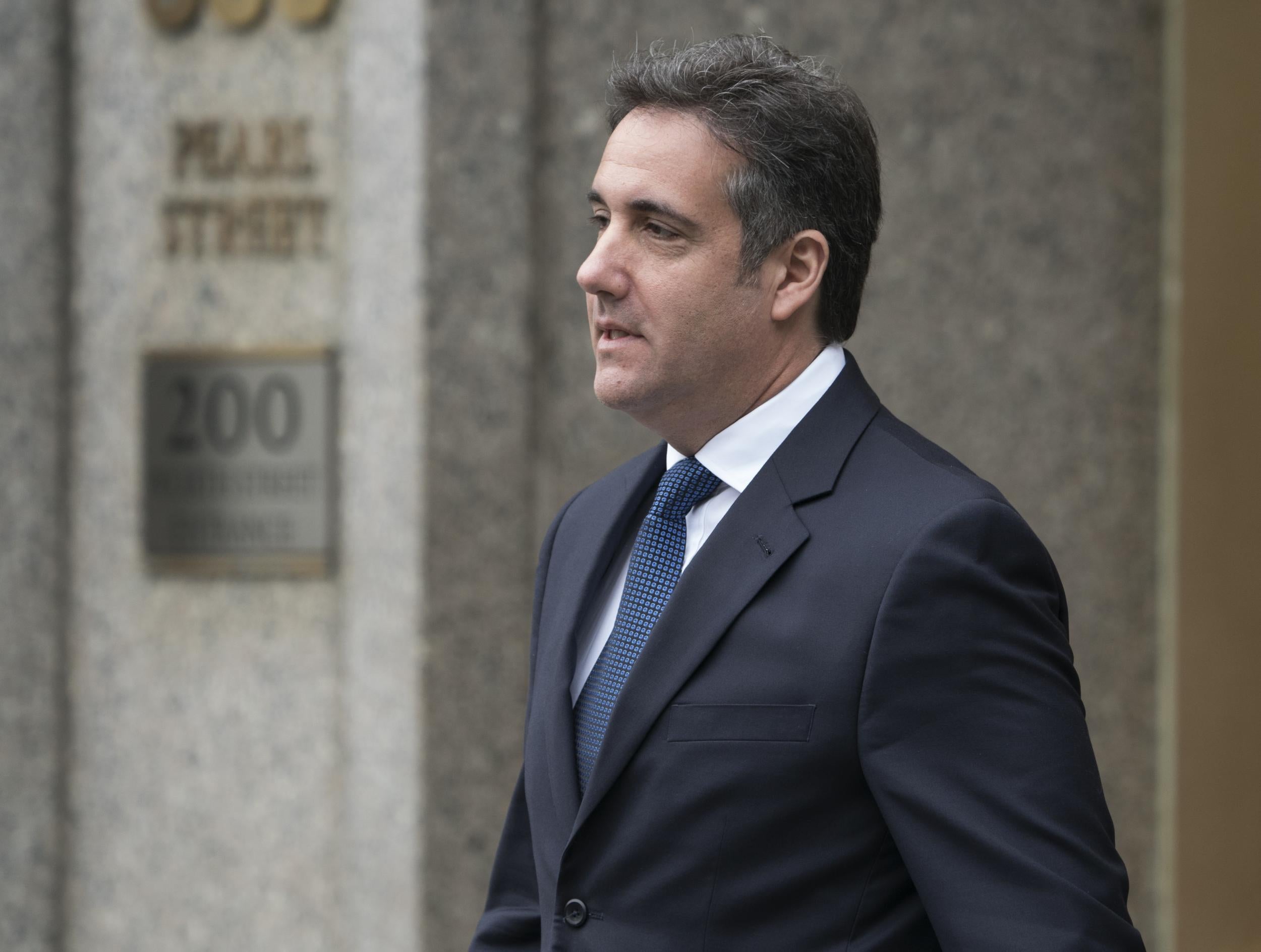New documents reveal extent of Michael Cohen's attempts to 'sell access' to White House, report claims
'What he was selling was a line of access to the Trump administration,' senator says

Your support helps us to tell the story
From reproductive rights to climate change to Big Tech, The Independent is on the ground when the story is developing. Whether it's investigating the financials of Elon Musk's pro-Trump PAC or producing our latest documentary, 'The A Word', which shines a light on the American women fighting for reproductive rights, we know how important it is to parse out the facts from the messaging.
At such a critical moment in US history, we need reporters on the ground. Your donation allows us to keep sending journalists to speak to both sides of the story.
The Independent is trusted by Americans across the entire political spectrum. And unlike many other quality news outlets, we choose not to lock Americans out of our reporting and analysis with paywalls. We believe quality journalism should be available to everyone, paid for by those who can afford it.
Your support makes all the difference.Donald Trump’s former personal attorney was more deeply involved with Novartis – a drug company for whom he attempted to “sell access” to the White House – than previously disclosed, a new Senate report has claimed.
A report drafted by Democrats on two Senate committees provides new insight into the controversial attempts by Michael Cohen, the president’s long-time attorney and personal “fixer”, to serve as a consultant on the new administration for outside companies.
The effort – which earned Mr Cohen more than $4m in the months after Mr Trump's election – raised questions over whether he had improperly peddled his White House access, and failed to adequately register as a lobbyist.
Drug manufacturer Novartis was one of several companies to admit in May that it had briefly worked with Mr Cohen. At the time, the company said it had contracted Mr Cohen only to advise them on the Trump administration might approach certain healthcare policies.
The new Senate report, however, claims Novartis explicitly sought out the attorney for his inside access to the White House.
An initial contract that Novartis sent to Mr Cohen called on him to provide “access to key policymakers” in the Trump administration, the report claims. Mr Cohen – who identified himself as Mr Trump’s personal lawyer in emails throughout the contract negations – allegedly represented that he would do so.
At one point, the report claims, Mr Cohen promised Novartis that he would present the company’s proposals for lowering drug costs to an administration official, and relay that official's feedback. Several of those proposals later appeared in the administration’s drug pricing plan, according to the report.
“What troubles me is that it sure looks like what Novartis got out of this deal was a direct line of access to the White House for their priorities,” Senator Ron Wyden, one of the Democrats who released the report, told ABC News.
“What he was selling was a line of access to the Trump administration,” he added. “That would be how I would characterise it.”
Novartis disputed the report’s findings in a statement, saying it had not issued a misleading statement about its relationship with Mr Cohen. Regarding the list of drug policy proposals, the company said Mr Cohen had been the one to ask Novartis CEO Joe Jimenez for ideas on how to lower drug prices.
Mr Cohen’s attorney, Lanny Davis, also disputed the findings, saying his client had never lobbied the administration or Congress on behalf of Novartis.
“Mr Cohen, who never introduced anyone from Novartis to anyone in the administration or Congress, did not 'sell access.' As a consultant, he provided strategic advice to his client," Mr Davis said in a statement to ABC News.
Novartis has repeatedly claimed it stopped working with Mr Cohen after a March 2017 meeting, in which executives determined that they lawyer had overstated his expertise and would be unable to serve their needs.
“Novartis had one … meeting with Mr. Cohen,” the company said in its statement on Friday. “And in hindsight – and certainly knowing everything we know now – we should have tried to terminate the contract with Mr. Cohen regardless of our views at the time of its legal enforceability.”
But the senator’s report claims Novartis continued to engage with Mr Cohen long after the 1 March meeting. Documents provided by the company show Mr Cohen and Mr Jimenez had multiple communications in the six months following – including four phone calls and several emails on “substantive issues” like the drug pricing proposals and Novartis’s potential investment in a small drug company.
In one email, Mr Cohen sent the CEO a pitch for a a therapy to treat autism in development by Yamo Pharmaceuticals, which Mr Jimenez said he would “look into” and discuss personally with their chief autism advocate.
Novartis claimed in its statement that any contact after 1 March was initiated by Mr Cohen. According to the report, however, calendar appointments show two calls after that date were scheduled to be initiated by Mr Jimenez.
Mr Jimenez stepped down as Novartis’s CEO in September of last year. In an email sent to employees in May, shortly after their work with Mr Cohen was disclosed, current CEO Vasant Narasimhan said the company had “made a mistake”.
“Yesterday was not a good day for Novartis,” he wrote. “…We made a mistake in entering into this engagement and, as a consequence, are being criticised by a world that expects more from us.”
The Senate committees have reached out to AT&T, another client of Mr Cohen's, for more information on their work with the attorney as well.
Join our commenting forum
Join thought-provoking conversations, follow other Independent readers and see their replies
Comments